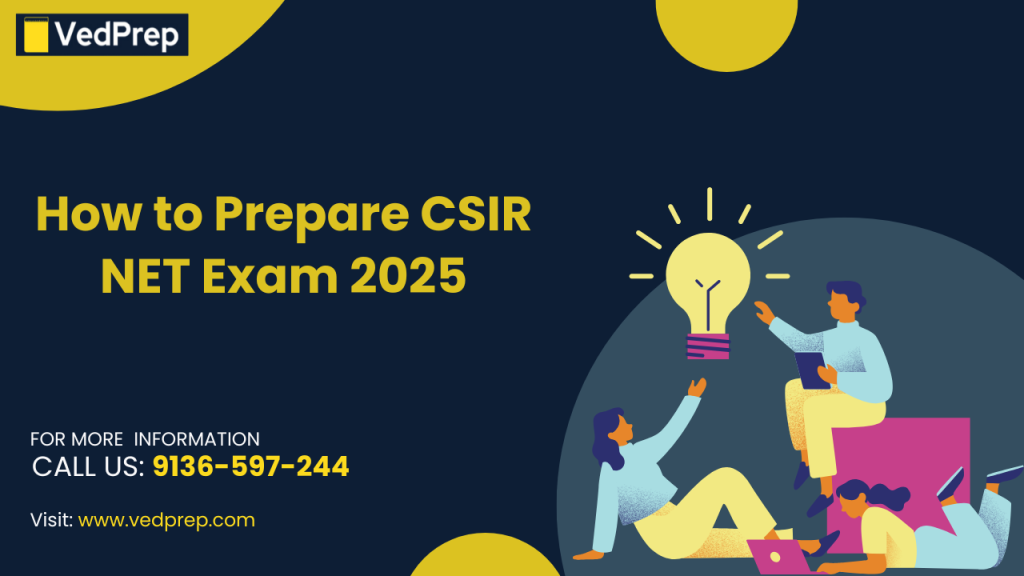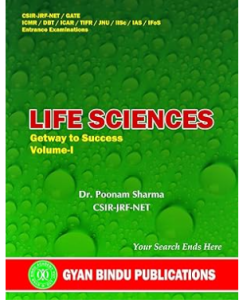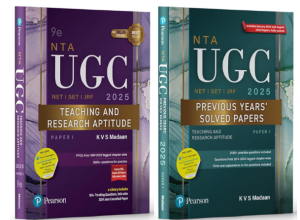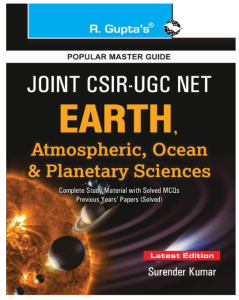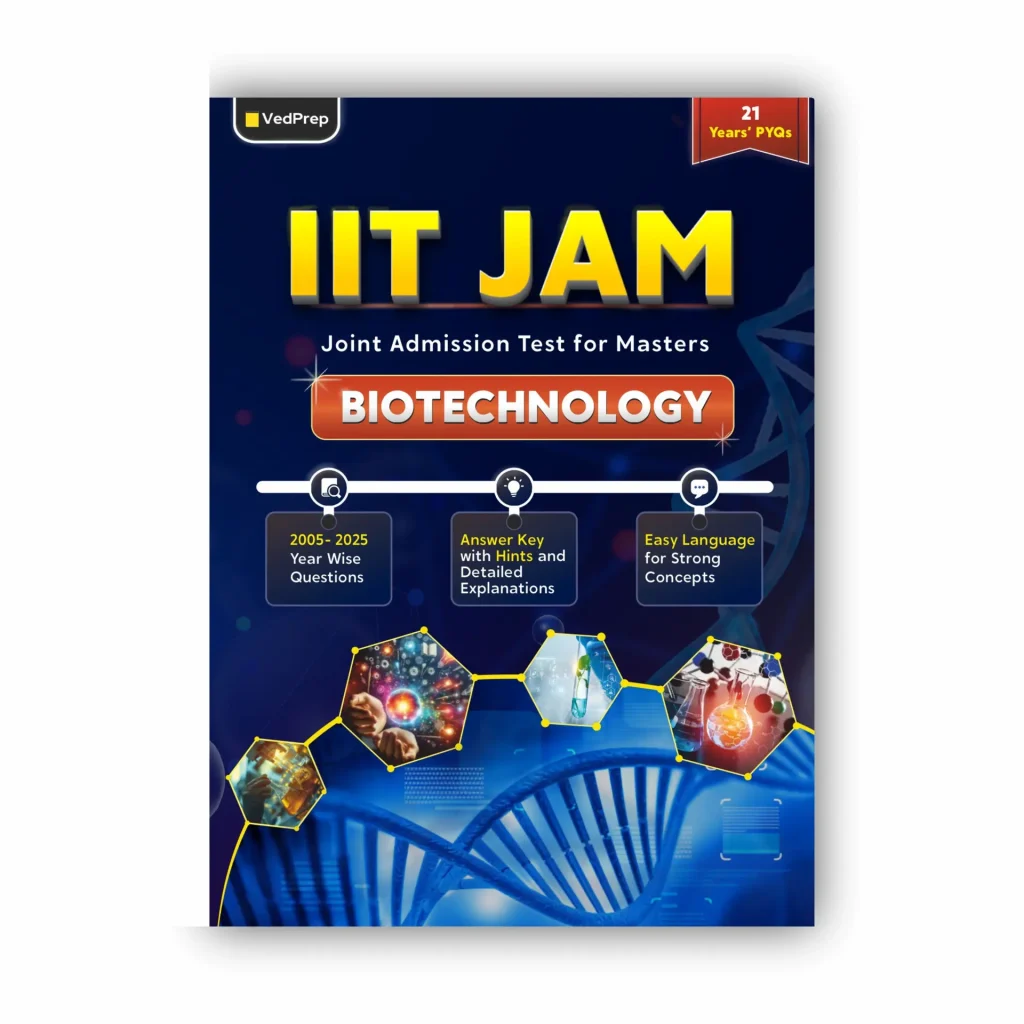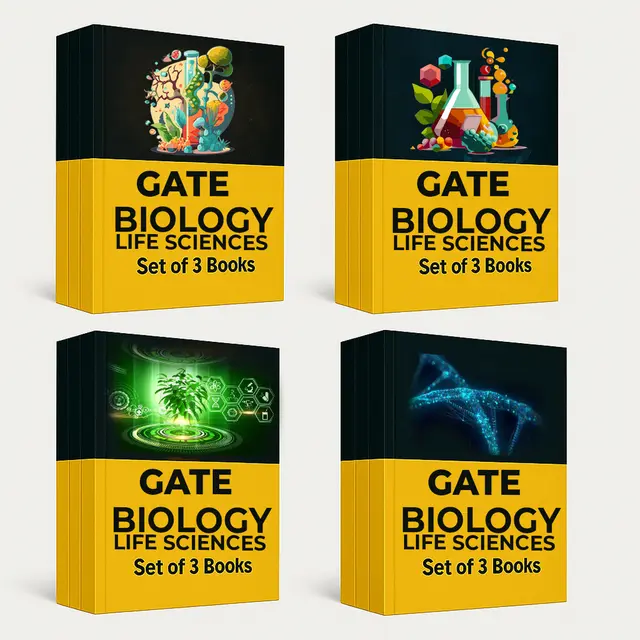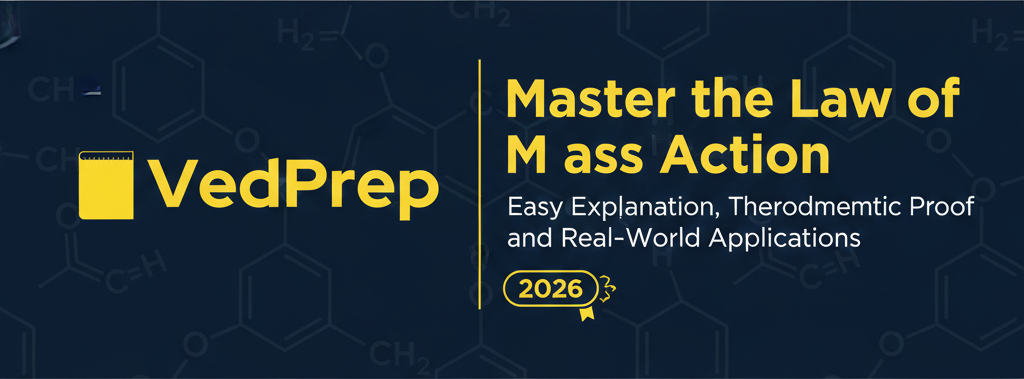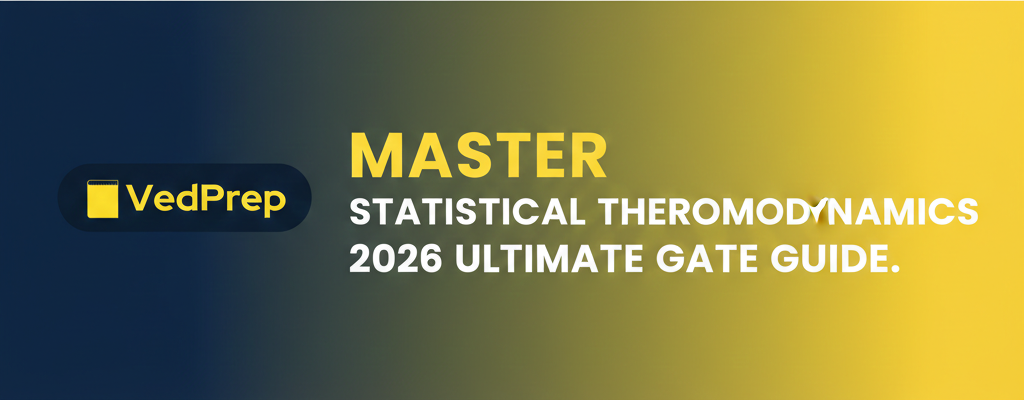How to prepare CSIR NET Exam 2025 is one of the most searched questions among science graduates aiming for research or teaching careers. CSIR NET (Council of Scientific and Industrial Research – National Eligibility Test) is a national-level exam conducted by NTA to select candidates for Junior Research Fellowship (JRF) and Lectureship positions in India. Cracking this exam requires more than just hard work; it needs the right guidance, smart planning, and consistent practice.
What is CSIR NET Exam?
CSIR NET (Council of Scientific and Industrial Research – National Eligibility Test) is a prestigious exam held to select candidates .CSIR NET also known as CSIR-UGC NET. CSIR NET and CSIR-UGC NET are the same exam, there is no difference between them.
- Junior Research Fellowship (JRF) – for research or Ph.D.
- Lectureship (LS) – for teaching at college or university level.
- Conducting Authority: National Testing Agency (NTA)
- Mode: Computer-Based Test (CBT)
- Frequency: Twice a year (June and December)
- Subjects: Life Sciences, Physical Sciences, Chemical Sciences, Mathematical Sciences, Earth Sciences
- CSIR JUNE 2025 : FINAL ANSWER KEY Download
How to Apply for CSIR NET Exam 2025
Applying for the CSIR NET 2025 exam is a completely online process conducted by the National Testing Agency (NTA). Candidates must carefully follow the registration steps to avoid errors or form rejection

You can also watch for better understanding click on the link – Big Update CSIR NET Dec 2025 | Application Form Out |
| Step | Action | Details / Instructions |
| Step 1: Visit the Official Website | Go to the official portal | 🔗 https://csirnet.nta.ac.in
Click on “Registration for CSIR NET 2025” under the latest notification section. |
| Step 2: Complete the Registration | Create a new account | – Click on “New Registration” and read the instructions carefully.
– Enter email ID, mobile number, and password to create an account. – You’ll receive an Application Number on your registered email and phone. |
| Step 3: Fill the Application Form | Enter all required details | – Log in using your Application Number and Password.
– Fill in details such as: ▪ Personal Info (Name, DOB, Gender, Nationality) ▪ Educational Qualification ▪ Chosen Subject (Life, Physical, Chemical, Earth, or Mathematical Science) ▪ Preferred Exam Centres Double-check all details before final submission. |
| Step 4: Upload Documents | Upload scanned copies | – Upload clear copies of the following:
▪ Passport-size Photograph ▪ Signature (in blue/black ink) ▪ Category Certificate (if applicable) ▪ PwD Certificate (if applicable) Files must be in JPG/JPEG format. |
| Step 5: Pay Application Fee | Online payment | – Pay via Debit Card, Credit Card, Net Banking, or UPI.
– The fee varies for General, OBC, EWS, SC/ST, and PwD categories. – After payment, a confirmation message will appear on the screen. |
| Step 6: Download Confirmation Page | Final step | After successful submission, download and save the confirmation page.
– Keep a printed copy for future reference (needed for admit card and verification). |
CSIR NET 2025 Exam Pattern
Understanding the CSIR NET 2025 Exam Pattern is key to cracking the exam. It outlines the number of questions, marking scheme, and section-wise distribution for all subjects.
| Section | Nature of Questions | Marks | Negative Marking | Remarks |
| Part A | General Aptitude | 30 Marks | 0.5 or 0.25 (varies) | Common for all subjects |
| Part B | Subject-related MCQs (basic) | 70 Marks | Yes | Conceptual questions |
| Part C | Subject-related (analytical) | 100 Marks | Yes | Research aptitude & application-based |
Total Duration: 3 hours
Total Marks: 200
Question Type: Multiple Choice Questions (MCQs)
Download the official syllabus PDF from the CSIR NET website and mark topics as you complete them.
Also Check the CSIR NET Cut Off
CSIR NET Exam 2025 Subject List and Codes
CSIR NET examination is conducted in five major subjects, each identified by a specific subject code. In addition to these, Part A (General Aptitude) is common to all papers and must be prepared alongside your chosen subject.
| Subject Code | Subject Name | Description / Coverage |
| 701 | Chemical Sciences | Includes Inorganic, Organic, and Physical Chemistry with emphasis on reaction mechanisms, spectroscopy, and chemical bonding. |
| 702 | Earth, Atmospheric, Ocean & Planetary Sciences | Covers geology, geophysics, meteorology, oceanography, and planetary science concepts. |
| 703 | Life Sciences | Encompasses molecular biology, genetics, ecology, evolution, and applied biological sciences. |
| 704 | Mathematical Sciences | Focuses on pure and applied mathematics, including algebra, analysis, differential equations, and statistics. |
| 705 | Physical Sciences | Comprises classical mechanics, quantum physics, electromagnetism, thermodynamics, and solid-state physics. |
CSIR NET Exam 2025 Topics Subtopics Detailed Syllabus Subject-wise
CSIR NET 2025 syllabus is divided into five major subjects each with specific units that assess conceptual understanding, analytical ability, and research aptitude.
CSIR JUNE 2025 : FINAL ANSWER KEY Download
1. CSIR NET Exam Life Sciences Detailed Syllabus
CSIR NET Life Sciences syllabus includes 13 major units covering fundamental and advanced concepts of biology. Check the detailed, unit-wise syllabus below to streamline your study plan.
You can also watch for better understanding click on the link – How to Crack CSIR NET Dec 2025 Life Sciences in 1st Attempt | Beginner to Topper Full Strategy
| Unit No. | Unit Title | Key Topics & Subtopics (Micro Level) |
| Unit 1 | Molecules and Their Interaction Relevant to Biology | Atomic structure, bonding and molecular interactions; Structure and function of biomolecules (carbohydrates, lipids, nucleic acids, proteins); Enzyme classification, kinetics, inhibition, coenzymes and cofactors; Bioenergetics, ATP synthesis, redox potential, and thermodynamics in biology. |
| Unit 2 | Cellular Organization | Prokaryotic vs eukaryotic cells; Membrane structure and transport; Cytoskeleton (actin, tubulin, intermediate filaments); Cell organelles and their functions; Cell division, cell cycle regulation, and checkpoints; Signal transduction pathways. |
| Unit 3 | Fundamental Processes | DNA replication, repair and recombination; Transcription (initiation to termination); RNA processing and editing; Translation and post-translational modifications; Regulation of gene expression in prokaryotes and eukaryotes. |
| Unit 4 | Cell Communication and Signaling | Hormones and receptors; G-protein coupled receptors, RTKs, MAPK, cAMP, IP3, DAG; Programmed cell death (apoptosis), oncogenes, tumor suppressor genes. |
| Unit 5 | Developmental Biology | Gametogenesis, fertilization, cleavage, gastrulation; Axis formation (Drosophila, C. elegans, Amphibians, Vertebrates); Morphogens, pattern formation, organogenesis; Stem cells and regeneration. |
| Unit 6 | System Physiology – Plant | Photosynthesis (C3, C4, CAM pathways), respiration, nitrogen metabolism, mineral nutrition; Plant hormones (auxin, gibberellin, cytokinin, ABA, ethylene); Stress physiology (drought, salt, heat). |
| Unit 7 | System Physiology – Animal | Digestive, circulatory, excretory, respiratory, endocrine and nervous systems; Muscle physiology; Homeostasis; Thermoregulation; Reproduction and development.Also Check the CSIR NET Cut Off |
| Unit 8 | Inheritance Biology | Mendelian principles, linkage, recombination, chromosomal theory; Sex determination, mutations, genetic mapping, population genetics, pedigree analysis. |
| Unit 9 | Diversity of Life Forms | Classification systems; Prokaryotes, fungi, algae, protozoa; Plant groups (bryophytes to angiosperms); Invertebrate and vertebrate diversity; Conservation and taxonomy. |
| Unit 10 | Ecological Principles | Ecosystem structure, energy flow, productivity; Population and community ecology; Ecological succession; Biogeochemical cycles; Biodiversity and conservation biology. |
| Unit 11 | Evolution and Behavior | Origin of life; Molecular evolution; Natural selection, genetic drift, speciation; Animal behavior, learning, social organization. |
| Unit 12 | Applied Biology | Immunology (antigens, antibodies, immune responses); Biotechnology (cloning, GMOs, vaccines); Environmental and industrial biotechnology; Microbial fermentation. |
| Unit 13 | Methods in Biology | Microscopy (light, electron, confocal), centrifugation, electrophoresis, spectroscopy, chromatography; PCR, sequencing, blotting techniques; Model organisms in research. |
2. CSIR NET Exam Chemical Sciences Detailed Syllabus
The CSIR NET Chemical Sciences syllabus is divided into three broad sections Inorganic, Physical, and Organic Chemistry. Check the micro-detailed syllabus below to structure your study plan effectively and target high-scoring areas.
| Section | Core Areas | Micro Topics |
| Inorganic Chemistry | Chemical bonding, structure, periodicity, coordination compounds, organometallics, bioinorganic chemistry, reaction mechanisms. | VSEPR, MO theory, crystal field theory, Jahn-Teller effect, substitution and redox reactions, catalysis by transition metals, organometallic complexes, magnetic properties, and bonding models. |
| Physical Chemistry | Quantum chemistry, thermodynamics, kinetics, electrochemistry, spectroscopy, surface chemistry, photochemistry. | Schrödinger equation, operators, thermodynamic laws, kinetics (first and second order), electrode potentials, adsorption isotherms, photochemical laws, molecular spectroscopy (IR, UV-Vis, Raman).Also Check the CSIR NET Cut Off |
| Organic Chemistry | Reaction mechanisms, reagents, stereochemistry, spectroscopy, synthetic strategies. | SN1/SN2/E1/E2 mechanisms, aromaticity, carbocations, radicals, nucleophiles, pericyclic reactions, rearrangements, reagents (LiAlH₄, PCC, OsO₄, etc.), NMR/IR/UV analysis, stereochemistry of chiral molecules. |
3. CSIR NET Exam Physical Sciences Detailed Syllabus
Physical Sciences paper in CSIR NET examines analytical and theoretical knowledge across key domains of Physics. The unit-wise detailed syllabus provided below outlines the essential topics to focus on for effective preparation.
| Section | Topics & Subtopics |
| 1. Mathematical Methods of Physics | Vector algebra & calculus, matrices, determinants, differential equations, Fourier and Laplace transforms, special functions, probability, complex analysis. |
| 2. Classical Mechanics | Newtonian mechanics, Lagrangian and Hamiltonian formulations, central force motion, small oscillations, rigid body dynamics, canonical transformations. |
| 3. Electromagnetic Theory | Electrostatics, magnetostatics, Maxwell’s equations, electromagnetic waves, reflection and transmission, Poynting vector. |
| 4. Quantum Mechanics | Schrödinger equation, operator formalism, perturbation theory, hydrogen atom, angular momentum, spin, identical particles. |
| 5. Thermodynamics and Statistical Physics | Laws of thermodynamics, Maxwell relations, ensembles, partition functions, Bose-Einstein and Fermi-Dirac statistics. |
| 6. Electronics and Devices | Semiconductor physics, diodes, transistors, amplifiers, digital circuits, operational amplifiers, logic gates. |
| 7. Atomic and Molecular Physics | Atomic structure, fine structure, Zeeman effect, molecular spectra (rotational, vibrational, electronic). |
| 8. Nuclear and Particle Physics | Nuclear forces, models, decays, detectors, cosmic rays, classification of particles, conservation laws. |
| 9. Solid State Physics | Crystal structure, X-ray diffraction, band theory, semiconductors, magnetism, superconductivity. |
How to Crack CSIR NET Dec 2025 Life Sciences in 1st Attempt | Beginner to Topper Full Strategy
4. CSIR NET Exam Mathematical Sciences Detailed Syllabus
CSIR NET Mathematical Sciences syllabus is designed to test conceptual clarity, analytical reasoning, and numerical problem-solving. Below is the detailed, topic-wise syllabus covering Algebra, Analysis, Differential Equations, Statistics, and more.
Also Check the CSIR NET Cut Off
| Section | Topics & Subtopics |
| 1. Linear Algebra | Vector spaces, linear transformations, eigenvalues, eigenvectors, inner product spaces, orthogonality, diagonalization. |
| 2. Complex Analysis | Analytic functions, Cauchy integral theorem, residue theorem, conformal mapping, Laurent series, singularities. |
| 3. Real Analysis | Sequences, limits, continuity, differentiation, integration, Riemann integration, uniform convergence. |
| 4. Algebra | Groups, rings, fields, subgroups, homomorphisms, quotient groups, ideals, polynomial rings. |
| 5. Ordinary Differential Equations (ODE) | First and higher-order ODEs, linear systems, existence and uniqueness, stability, phase portraits. |
| 6. Partial Differential Equations (PDE) | Classification, separation of variables, boundary value problems, heat and wave equations. |
| 7. Numerical Analysis | Numerical solutions of equations, interpolation, differentiation, integration, ODEs, errors and convergence. |
| 8. Calculus of Variations & Functional Analysis | Euler-Lagrange equations, Hilbert spaces, Banach spaces, linear operators. |
| 9. Probability & Statistics | Random variables, distributions, expectations, law of large numbers, central limit theorem, estimation and hypothesis testing. |
| 10. Linear Integral Equations | Fredholm and Volterra equations, kernels, resolvent functions. |
| 11. Topology | Open and closed sets, continuity, compactness, connectedness, metric spaces. |
5. CSIR NET Exam Earth, Atmospheric, Ocean and Planetary Sciences Detailed Syllabus
CSIR NET Earth, Atmospheric, Ocean and Planetary Sciences syllabus integrates topics from geology, atmospheric science, oceanography, and planetary exploration. Check the detailed breakdown below to plan your preparation effectively.
| Section | Topics & Subtopics |
| 1. Earth Science Fundamentals | Structure and composition of Earth, plate tectonics, mineralogy, petrology, geochemistry. |
| 2. Geophysics | Seismic waves, gravity, magnetic and electrical methods, geophysical surveying, heat flow. |
| 3. Atmospheric Science | Atmospheric composition, thermodynamics, dynamics, general circulation, monsoon, weather systems, climate change. |
| 4. Ocean Sciences | Ocean currents, waves, tides, ocean circulation, upwelling, marine sediments, biogeochemical cycles. |
| 5. Planetary Sciences | Origin of the solar system, planetary interiors, planetary atmospheres, space exploration, remote sensing. |
| 6. Environmental Geoscience | Soil erosion, pollution, waste management, hydrogeology, environmental impact assessment. |
CSIR NET Exam 2025 Summary Table Units in Each Subject
CSIR NET 2025 syllabus summary table, showing the subject-wise division of units and their major focus areas. This overview helps candidates plan their preparation according to the weightage of each subject.
| Subject | Total Units | Key Focus Areas |
| Life Sciences | 13 | Molecular Biology, Cell Biology, Ecology, Evolution, Methods in Biology |
| Chemical Sciences | 3 | Inorganic, Organic, and Physical Chemistry |
| Physical Sciences | 9 | Mechanics, Quantum Physics, Electromagnetism, Thermodynamics, Solid State |
| Mathematical Sciences | 11 | Algebra, Analysis, Differential Equations, Statistics, Functional Analysis |
| Earth Sciences | 6 | Geology, Geophysics, Atmospheric, Oceanic, and Planetary Systems |
CSIR NET Exam Best Books 2025 Subject-Wise Recommendations
Preparing for CSIR NET 2025 requires conceptual clarity and reliable study materials. To help you choose the right books, we’ve compiled a subject-wise list of the best CSIR NET books with updated recommendations, features, and preparation benefits.
CSIR NET Previous Year Questions Link
Best CSIR NET Life Sciences Books for 2025 Preparation
CSIR NET Life Sciences 2025 Below is a curated list of expert-recommended and topper-approved books covering all 13 units perfect for both beginners and advanced aspirants.
| Book Title | Author / Publication | Key Features |
| Life Science | Ashish Nagesh & Quaisher J. Hossain | Written in simple and clear language; covers important topics and concepts thoroughly. Includes solved papers and full-length mock tests for practice. |
| Life Sciences Book – Vol. I | Dr. Poonam Sharma | Comprehensive coverage with supporting diagrams, flowcharts, and tables for visual learning. Ideal for concept clarity and last-minute revision. |
| CSIR–UGC NET Life Sciences | Trueman’s Publication | Updated as per the latest CSIR NET syllabus. Offers concise theory, topic summaries, and previous years’ question discussions for effective revision. |
| Life Sciences Fundamentals & Practice (Part I & II) | Pranav Kumar | Well-structured content covering almost all Life Science units. Includes end-of-chapter exercises and MCQs to reinforce understanding. |
| Fundamentals of Life Sciences (Vol. I & II) | Rupendra Singh | Detailed explanations presented in a simple and systematic way. Each topic aligns with the current CSIR NET exam pattern and syllabus trends. |
Best CSIR NET Physical Sciences Books for 2025 Preparation
CSIR NET Physical Sciences 2025? Here’s the ultimate list of the best books for CSIR NET Physical Science, recommended by experts and toppers, to help you cover all topics — from mechanics to quantum and solid-state physics.
| Book Title | Author / Publication | Key Features |
| Fundamentals of Statistical and Thermal Physics | F. Reif | A highly recommended reference for mastering Statistical Mechanics and Thermodynamics. The book explains modern physics ideas in a clear and structured way, focusing only on essential concepts without unnecessary complexity. |
| Introductory Nuclear Physics | Kenneth S. Krane | Ideal for understanding Nuclear Physics fundamentals aligned with CSIR NET requirements. Includes solved examples, concise theory, and practice MCQs to test conceptual clarity. |
| Solid State Physics | Neil W. Ashcroft & N. David Mermin | A classic and comprehensive text covering crystal structures, band theory, and magnetic properties. Concepts are presented in a simple yet analytical approach suitable for NET-level preparation. |
| Mathematical Methods for Physicists | George B. Arfken & Hans J. Weber | Provides a complete range of mathematical tools essential for physical science. Topics progress from basic calculus to advanced differential equations, ensuring strong numerical and analytical foundations. |
| Introduction to Quantum Mechanics | David J. Griffiths | One of the best resources for Quantum Mechanics. Known for its lucid explanations, logical derivations, and problem-solving approach tailored for postgraduate and CSIR-level exams. |
CSIR NET Exam Chemical Science Books
The CSIR NET Chemical Science books listed below include the most popular and highly recommended resources for all three branches — Inorganic, Organic, and Physical Chemistry. These books are aligned with the latest NTA-CSIR NET syllabus for 2025.
| Book Title | Author / Publication | Key Features |
| Inorganic Chemistry | D.F. Shriver, P.W. Atkins & C.H. Langford | A complete guide to inorganic chemistry concepts, covering bonding, coordination compounds, and structure systematically. Excellent for conceptual clarity and NET-level questions. |
| Fundamentals of Molecular Spectroscopy | C.N. Banwell | Explains spectroscopy principles clearly with problem sets and model papers. Ideal for mastering molecular structure and optical methods. |
| Principles of Physical Chemistry | Peter Atkins | Concise explanations of core physical chemistry principles. Includes numerous solved examples for thermodynamics, kinetics, and quantum topics. |
| Stereochemistry of Organic Compounds | Ernest L. Eliel | An in-depth and problem-focused text on stereochemistry, covering conformations, chirality, and stereochemical principles. |
| Organic Chemistry | Jonathan Clayden, Nick Greeves & Stuart Warren | Comprehensive yet accessible presentation of reaction mechanisms and organic synthesis. Designed for deep conceptual understanding. |
CSIR NET Exam Physical Science Books
The CSIR NET Physical Science exam requires a solid combination of theory and practice. Check out the list of best books for CSIR NET Physical Science 2025, recommended by toppers and subject experts.
You can also watch for better understanding click on the link – CSIR NET Dec 2025 Application Form | Step-by-Step Guide & 5 Mistakes to Avoid
| Book Title | Author / Publication | Key Features |
|---|---|---|
| Fundamentals of Statistical and Thermal Physics | F. Reif | Covers statistical mechanics and thermodynamics clearly. Focuses on conceptual learning rather than memorization. |
| Introductory Nuclear Physics | Kenneth S. Krane | Clear explanations of nuclear structure, decay, and interactions. Includes worked examples and topic-based exercises. |
| Solid State Physics | Neil W. Ashcroft & N.D. Mermin | A thorough and detailed book for mastering crystal physics, band theory, and solid-state concepts. |
| Mathematical Methods for Physicists | George B. Arfken & Hans J. Weber | Covers all mathematical tools needed for physical sciences—from basic algebra to advanced differential equations. |
| Introduction to Quantum Mechanics | David J. Griffiths | Provides a solid foundation in quantum mechanics through intuitive explanations and solved problems. |
CSIR NET Exam Life Science Books
The CSIR NET Life Science books mentioned below are among the most recommended by toppers and educators. They cover molecular biology, genetics, ecology, and other key areas crucial for cracking the exam.
| Book Title | Author / Publication | Key Features |
| Life Science | Ashish Nagesh & Quaisher J. Hossain | Easy-to-follow language and topic coverage based on CSIR syllabus. Includes solved question papers and practice tests. |
| Life Sciences Book (Vol. I) | Dr. Poonam Sharma | Detailed illustrations, charts, and tables for better retention and visual learning. Great for quick revisions. |
| CSIR–UGC NET Life Sciences | Trueman’s Publication | Covers all Life Science units as per the latest syllabus. Offers theory summaries and past-year paper discussions. |
| Life Sciences Fundamentals & Practice (Part I & II) | Pranav Kumar | Extensive coverage of molecular biology, genetics, and ecology. Includes end-of-chapter exercises for self-assessment. |
| Fundamentals of Life Sciences (Vol. I & II) | Rupendra Singh | Concepts explained in a systematic manner with up-to-date research information and examination-focused content. |
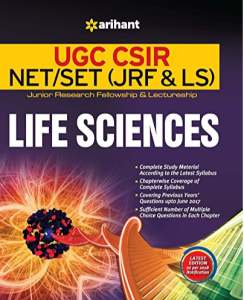
CSIR NET Exam Mathematical Science Books
The CSIR NET Mathematical Science books listed below cover all important topics such as Algebra, Analysis, Differential Equations, and Statistics. Check the recommended books and features to choose the best ones for your 2025 preparation.
| Book Title | Author / Publication | Key Features |
| Foundations of Functional Analysis | S. Ponnusamy | Covers advanced mathematical frameworks essential for higher-level problem solving. Includes proofs, examples, and exercises. |
| CSIR-UGC NET/JRF/SLET Mathematical Sciences (Paper I & II) | Dr. A. Kumar | Comprehensive guide designed specifically for CSIR NET aspirants with model papers and practice sets. |
| Contemporary Abstract Algebra | N.L. Carothers | Simplifies complex algebraic concepts with solved examples, theorems, and review problems. |
| Complex Variables & Applications | James Brown & Ruel Churchill | Step-by-step explanations and exercises based on recent exam patterns. Excellent for mastering analytical mathematics. |
| Topics in Algebra | I.N. Herstein | Covers linear algebra, field theory, and group theory with conceptual clarity. Includes solved and unsolved problems for practice. |
CSIR NET Exam Earth Science Books
To build a solid foundation for CSIR NET Earth Science, you’ll need the right textbooks. Here’s a curated list of recommended books.
| Book Title | Author / Publication | Key Features |
| Joint CSIR-UGC (NET) Earth, Atmospheric, Ocean & Planetary Sciences Guide (Part B & C) | R. Gupta | Comprehensive study material with solved previous year papers and conceptual summaries. |
| CSIR UGC NET (Earth Science) | R. Gupta | Updated as per latest CSIR syllabus. Contains detailed explanations and previous years’ question papers. |
| Statistics of Earth Science Dating | Graham Borradaile | Focuses on statistical approaches in geology and geochronology, essential for analytical questions. |
| Earth Science Book | Phil Medina | Simplified explanations with ample solved examples and objective-type questions for exam-oriented preparation. |
| Climatology & Oceanography | D.S. Lal | Explains climate systems, ocean dynamics, and atmospheric processes in a clear and concise way. |
CSIR NET Previous Year Questions Link
CSIR NET Exam Factors Consider Before Choosing Books
Selecting the perfect book can make or break your CSIR NET preparation. To help you make a smart choice, here are the most important factors to consider before selecting your CSIR NET books.
- Match with Official Syllabus:
Ensure that the book covers all topics and subtopics listed in the latest CSIR NET syllabus. - CSIR NET Dec 2025 Application Form | Step-by-Step Guide & 5 Mistakes to Avoid
- Clarity and Depth:
Choose books that offer conceptual understanding, not just summaries. Look for examples and illustrations that simplify complex ideas. - Includes Previous Years’ Papers:
Books with solved question papers and mock tests help you understand the exam pattern and difficulty level. - Author Expertise:
Prefer books written by renowned academicians or subject experts frequently recommended by toppers and professors. - Practice Exercises:
Regularly solving chapter-wise MCQs and numerical problems is essential for accuracy and time management. - Supplementary Digital Resources:
Opt for books that come with video lectures, test series, or online materials for blended learning. - Student Reviews:
Read ratings and feedback from CSIR aspirants before buying a book to ensure reliability and effectiveness.
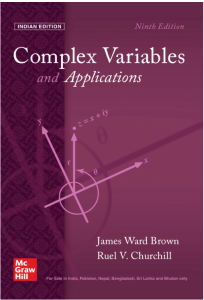
CSIR NET Exam Importance Using Right NET Books
The foundation of every successful CSIR NET preparation lies in the books you choose. Below, we explain the importance of selecting the best CSIR NET books and how the right resources can maximize your performance in the exam.
- Comprehensive Coverage:
Standard books ensure complete syllabus coverage, including theoretical and applied concepts. - Structured Learning:
Topics are arranged systematically to help you learn step-by-step and revise efficiently. - Practice-Oriented Approach:
Inclusion of exercises, solved papers, and mock tests boosts analytical skills. - Concept Clarity:
Quality content helps simplify difficult subjects like Quantum Physics or Biochemistry for better retention. - Exam-Focused Preparation:
Books are aligned with CSIR’s latest pattern and marking scheme, ensuring targeted study.
How to Start Preparing for CSIR NET Exam 2025
The biggest mistake aspirants make is starting preparation without a proper plan. Follow these steps to begin smartly:
- Understand your subject syllabus deeply.
- Divide topics into easy, moderate, and difficult levels.
- Create a practical timetable (not a fancy one).
- Set weekly and monthly targets.
- Start with conceptual clarity before jumping into MCQs.
Preparation Strategy Step-by-Step
A clear preparation plan is the foundation of success in any competitive exam. Below is a comprehensive, step-by-step strategy designed to help aspirants prepare systematically for the CSIR NET 2025 examination.
Step 1: Understand the Exam Pattern & Weightage
- Focus 40% time on Part C (analytical questions)
- Part A (Aptitude): Practice daily 1–2 questions
- Part B: Revise NCERT + graduation basics
Step 2: Topic-Wise Study Plan
- Divide syllabus into Units → Subtopics → Micro concepts
- Make short notes and formula sheets
- Use standard books (VedPrep’s recommended list)
Step 3: Practice
- Solve previous 10 years’ CSIR papers
- Attempt mock tests & topic-wise PYQs
- Analyze weak areas weekly
Step 4: Revision
- Make mind maps / flowcharts
- Use spaced repetition for memory retention
- Weekly revision cycles
Step 5: Smart Time Management
- 3 hours daily = 1 hr theory + 1 hr PYQ + 1 hr notes/mocks
- Increase gradually to 6–8 hours near exam
CSIR NET Dec 2025 Application Form | Step-by-Step Guide & 5 Mistakes to Avoid
CSIR NET Exam 2025 Study Plan
Planning your preparation is as important as studying itself. Below is a detailed CSIR NET 2025 study plan, designed to help aspirants manage time, track progress, and maximize their performance in the final exam.
| Phase | Duration | Focus Area | Key Actions |
| Phase 1 | 3–4 months | Syllabus Coverage | Read concepts, make short notes |
| Phase 2 | 2 months | Strengthening Concepts | Solve topic-wise MCQs, revise theory |
| Phase 3 | 1 month | Full Revision | Attempt mocks, analyze mistakes |
Daily Routine Example:
- 2 hours – Concept study
- 2 hours – Practice MCQs
- 1 hour – Revision
- 30 mins – Aptitude practice
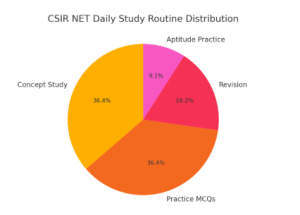
Bonus Tip: Make your own handwritten short notes for formulae, reactions, and diagrams they help during final revision.
Also Check CSIR NET Important Questions for Life Science
CSIR NET 2025 Preparation Timetable Subject-Wise Study Plan
To crack the CSIR NET Exam 2025, a well-structured and consistent study plan is key.
Below are expert-curated subject-wise timetables for all five CSIR NET subjects designed to help you cover the syllabus completely with systematic revisions.
How to prepare for CSIR NET General Aptitude (Part A) 31-Day Study Plan
Even though Part A (General Aptitude) carries lesser weightage (30 marks), it’s a scoring section. Prepare it alongside your main subject using this 31-day micro-plan.
| Days | Topics / Focus Areas |
| Day 1–2 | Number & Simplification, Bar Graph, Line Graph |
| Day 3–4 | LCM & HCF, Mean, Median, Mode |
| Day 5–6 | Average, Quadratic Equations, Coding-Decoding |
| Day 7 | Revision of Days 1–6 |
| Day 8–9 | Sequence & Series, Series Formation, Pie-chart |
| Day 10–11 | Surds & Indices, Logarithms, Percentages |
| Day 12–13 | Profit & Loss, Tabulation, Direction-Distance |
| Day 14–15 | Revision of Days 1–13 |
| Day 16–17 | Simple & Compound Interest, Calendar & Clock |
| Day 18–19 | Ratio-Proportion, Ranking, Seating Arrangement |
| Day 20–21 | Partnership, Mixtures, Time & Work |
| Day 22–23 | Revision of Days 1–21 |
| Day 24–25 | Speed-Time-Distance, Geometry |
| Day 26–27 | Permutation & Combination, Mensuration |
| Day 28–29 | Probability, Trigonometry |
| Day 30 | Major Revision of Days 1–29 |
| Day 31 | Full Revision + Sectional Mock Test |
Tip: Practice 10–15 aptitude questions daily alongside subject preparation.
How to prepare for CSIR NET exam Chemistry 90-Day Study Plan
This 3-month plan ensures coverage of Inorganic, Organic, Physical & Interdisciplinary Chemistry, with dedicated revision blocks
| Days | Topics |
| Day 1–3 | Chemical Periodicity, Bonding |
| Day 4–5 | Main Group Elements, Acids & Bases |
| Day 6–8 | Transition & Inner Transition Elements, Coordination Compounds |
| Day 9–10 | Revision of Days 1–8 |
| Day 11–12 | Organometallic Compounds, Metal Clusters |
| Day 13–15 | Analytical & Bioinorganic Chemistry |
| Day 16–17 | Characterization, Nuclear Chemistry |
| Day 18–20 | Revision of Days 1–17 |
| Day 21–27 | Quantum Mechanics, Atomic Structure, Spectroscopy |
| Day 28–30 | Group Theory, Molecular Spectroscopy |
| Day 31–40 | Thermodynamics, Kinetics, Electrochemistry, Solid State |
| Day 41–47 | Polymers, Stereochemistry, Nomenclature |
| Day 48–56 | Organic Mechanisms, Rearrangements, Reagents, Pericyclic Reactions |
| Day 57–67 | Natural Products, Medicinal, Supramolecular & Environmental Chemistry |
| Day 68–85 | Full Revision – Physical, Inorganic, Organic Chemistry |
| Day 86–90 | Final Revision + Interdisciplinary Topics |
| Day 91+ | Mock Tests + Formula Recap |
Tip: Focus more on Part C (analytical) questions for rank improvement.
How to prepare for CSIR NET Earth, Atmospheric, Ocean & Planetary Sciences 130-Day Study Plan
A long-term plan covering Geology, Oceanography, Meteorology, Climatology & Planetary Science, structured in topic clusters.
| Days | Topics |
| Day 1–7 | Earth & Solar System, Earth Materials, Surface Processes, Tectonics, Environmental Earth Science |
| Day 8–23 | Mineralogy, Petrology, Structural Geology, Geotectonics |
| Day 24–33 | Palaeontology, Sedimentology, Stratigraphy |
| Day 34–48 | Marine Geology, Geochemistry, Economic, Precambrian Geology |
| Day 49–57 | Remote Sensing, Engineering Geology, Hydrogeology |
| Day 58–70 | Geomorphology, Climatology, Environmental Geography |
| Day 71–83 | Geodynamics, Plate Tectonics, Seismology, Field Theory |
| Day 84–100 | Meteorology (Atmospheric Electricity, Cloud Physics, Climate Modelling) |
| Day 101–107 | Oceanography (Physical, Chemical, Biological) |
| Day 108–130 | Subject-Wise Revisions (Geology → Meteorology → Geography → Geophysics) |
| Day 131+ | Full Syllabus Revision + Mock Tests |
Also Check the CSIR NET Cut Off
How to prepare for CSIR Net life science exam 90-Day Study Plan
A structured 3-month plan for Life Sciences covering all 13 units from Molecular Biology to Methods in Biology.
| Days | Topics |
| Day 1–13 | Molecules & Cellular Organization |
| Day 14–23 | Fundamental Processes, Cell Communication |
| Day 24–35 | Developmental Biology, System Physiology (Plant & Animal) |
| Day 36–52 | Inheritance, Diversity, and Ecological Principles |
| Day 53–70 | Evolution, Applied Biology |
| Day 71–85 | Methods in Biology |
| Day 86–90 | Comprehensive Revisions + Practice Papers |
| Day 91+ | Full Mock Tests & Flash Revision |
Tip: Focus on Units 1–5 and 11–13 — they hold the most weight in Part C questions.
How to prepare for CSIR NET Mathematical Science 140-Day Study Plan
Plan focused on Algebra, Analysis, Differential Equations, Topology, and Statistics, spread across 4+ months.
| Days | Topics |
| Day 1–15 | Analysis & Linear Algebra |
| Day 16–34 | Complex Analysis & Algebra |
| Day 35–59 | Topology, ODEs, PDEs |
| Day 60–78 | Numerical Analysis, Calculus of Variations |
| Day 79–100 | Integral Equations, Mechanics |
| Day 101–121 | Statistics & Data Analysis |
| Day 122–140 | Full Revision (Units 1–4), Mock Tests |
| Day 141+ | Formula Recap + Practice of Part C Questions |
Tip: Focus more on proof-based questions and Part C numerical analysis problems.
How to prepare for CSIR NET Physical Science 100-Day Study Plan
Click here to download CSIR NET Previous Year Question Papers PDF.
A comprehensive 100-day plan covering Mathematical Physics, Mechanics, Quantum, and Electronics with proper revision stages.
| Days | Topics |
| Day 1–20 | Mathematical Methods & Classical Mechanics |
| Day 21–34 | Electromagnetic Theory |
| Day 35–44 | Quantum Mechanics |
| Day 45–70 | Thermodynamics, Statistical Physics, Electronics |
| Day 71–84 | Atomic, Molecular, Condensed Matter Physics |
| Day 85–94 | Nuclear & Particle Physics |
| Day 95–100 | Final Revision + Full Mock Tests |
| Day 101+ | Formula Review & Time-Bound Practice Sessions |
Key Preparation For All Subjects
No matter which subject you choose for CSIR NET, certain preparation principles remain the same. Here are some key preparation insights for all subjects to help you plan your study routine efficiently and stay exam-ready
| Aspect | Strategy |
| Daily Study Hours | 6–8 hours (split between theory, PYQs, and revision). |
| Weekly Routine | 5 days study + 1 day revision + 1 day test. |
| Mock Tests | Attempt 1 full mock per subject every 2 weeks. |
| Note Making | Maintain formula sheets, concept charts, and short notes. |
| Revision Cycle | Revise each topic 3 times before the exam (7-day, 30-day, final cycle). |
Also, Check Important Topics for Physical Science
CSIR NET Exam Importance of Previous Year Papers & Mock Tests
To crack the CSIR NET 2025 exam, theory alone isn’t enough — consistent practice through previous year question papers and mock tests is the key. Below, we explain the importance of solving CSIR NET PYQs and full-length tests for effective exam preparation.
| Step | Why It Matters |
| 1. Analyze PYQs | Identify repeated topics & important chapters |
| 2. Practice Mocks Weekly | Builds accuracy and speed |
| 3. Review Mistakes | Strengthens weak areas |
| 4. Simulate Exam Conditions | Reduces anxiety on actual exam day |
Solve at least 10 previous year papers and 15–20 mock tests before the exam.
CSIR NET Previous Year Questions
Vedprep provides CSIR NET previous year question papers in PDF format for free download. These question papers cover all CSIR NET subjects—Life Sciences, Chemical Sciences, Earth Sciences, Mathematical Sciences, and Physical Sciences. They include detailed papers from prior years along with answer keys and solutions, which help candidates familiarize themselves with exam patterns, question types, and difficulty levels.
| CSIR NET Previous Year Questions Link | |
| CSIR NET Life Sciences | Click Here |
| CSIR NET Physical Sciences | Click Here |
| CSIR NET Earth Sciences | Click Here |
| CSIR NET Chemical Sciences | Click Here |
| CSIR NET Mathematical Sciences | Click Here |
CSIR NET Previous Year Question Papers 2024 PDF
Download the CSIR NET 2024 question papers (June and December sessions) for all subjects in PDF format. These papers help candidates analyze the latest question trends and difficulty levels to prepare effectively for CSIR NET 2025.
| CSIR NET Previous Year Question Papers PDF (2024) | ||
| Subjects | Exam Shift | Download Link |
| Chemical Science | Shift 1 | PDF Download |
| Shift 2 | PDF Download | |
| Life Science | Shift 1 | PDF Download |
| Shift 2 | PDF Download | |
| Shift 1 | PDF Download | |
| Earth Science | Shift 1 | PDF Download |
| Shift 1 | PDF Download | |
| Shift 1 | PDF Download | |
| Mathematical Science | Shift 1 | PDF Download |
| Shift 2 | PDF Download | |
| Shift 1 | PDF Download | |
| Physical Science | Shift 1 | PDF Download |
CSIR NET Previous Year Question Papers 2023 PDF
The CSIR NET 2023 papers provide insights into topic distribution and commonly asked concepts. Aspirants should solve both sessions’ papers to understand the exam pattern and improve their accuracy.
| CSIR NET Previous Year Question Papers PDF (2023) | ||
| Subjects | Exam Shift | Download Link |
| Chemical Science | Shift 1 | PDF Download |
| Life Science | Shift 1 | PDF Download |
| Shift 2 | PDF Download | |
| Shift 1 | PDF Download | |
| Shift 2 | PDF Download | |
| Earth Science | Shift 2 | PDF Download |
| Mathematical Science | Shift 1 | PDF Download |
| Shift 2 | PDF Download | |
| Physical Science | Shift 1 | PDF Download |
| Shift 2 | PDF Download | |
CSIR NET Dec 2025 Application Form | Step-by-Step Guide & 5 Mistakes to Avoid
Revision Strategy for CSIR NET Exam
A good preparation plan must end with a perfect exam strategy. Below are the best exam day strategies for CSIR NET 2025, including time management techniques, question selection tips, and focus hacks to boost your final performance. Many students study well but fail to revise — which leads to poor retention.
Follow this 3-step revision method:
- Short Notes: Create 1-page summaries for each topic.
- Flashcards: Use for definitions, reactions, and formulas.
- Weekly Revisions: Dedicate one day each week only for revising.
In the final 30 days, revise the entire syllabus twice.
Is CSIR NET Exam Tough?
A common question among aspirants is the CSIR NET exam difficult to crack? Below, we discuss the difficulty level of the CSIR NET exam, factors that affect it, and tips to make your preparation journey easier and more effective. The exam is challenging but not impossible. It’s tough only when preparation is unplanned.
If you:
- Understand the syllabus clearly,
- Follow a disciplined plan,
- Solve PYQs regularly,
- You can easily score above the cutoff and qualify for JRF or Lectureship.
- Also Check CSIR NET Notes
CSIR NET Exam Day Strategy
Success in CSIR NET doesn’t just depend on what you study it also depends on how you perform on the exam day. Below is a step-by-step CSIR NET Exam Day Strategy to help you utilize every minute wisely and avoid common mistakes.
| Time | Section | Strategy |
| First 20 minutes | Part A (General Aptitude) | Start with the easiest questions first. Focus on reasoning, numerical ability, and data interpretation questions that you’re confident about. Avoid spending too much time on puzzles or lengthy calculations. |
| Next 40 minutes | Part B (Subject-Based Concepts) | Target moderate-level questions based on direct concepts and formulas. Read each question carefully and skip the ones that seem time-consuming. Accuracy is more important than quantity here. |
| Remaining Time | Part C (Analytical & Application-Based Questions) | Attempt these last, as they require deeper thinking and detailed calculations. Focus on high-weightage analytical questions from your strong topics. Stay calm and manage time efficiently. |
Important Tips
- Avoid random guessing, as negative marking applies in all parts of the paper.
- Always mark answers carefully — incorrect responses can reduce your final score.
- Keep track of time and reserve the last few minutes to review marked answers.
- Stay composed — don’t panic if you find certain sections tough; move to the next question confidently.
- Attempt mock tests under timed conditions before the exam to get used to this time structure.
How to Prepare CSIR NET Exam 2025 FAQs
How many months of preparation are needed to crack CSIR NET?
Most aspirants prepare in 6–8 months with focused study, PYQ practice, regular mock tests, and systematic revision.
Which books are best for CSIR NET Chemical Science preparation?
Use reference texts for theory plus CSIR NET PYQ books; combine an NTA-aligned guide with advanced texts for Organic, Inorganic, Physical topics.
How important are previous year question papers for CSIR NET?
PYQs are vital to spot trends, difficulty level, repeated topics and to build time management under exam conditions.
What is the ideal daily routine for CSIR NET aspirants?
A balanced schedule: concept study, MCQ practice, revision, short aptitude drills. Typical plan: 2 hrs concept, 2 hrs MCQs, 1 hr revision, 30 min aptitude.
Can I prepare for CSIR NET without coaching?
Yes. Self study works with disciplined planning, right books, regular mock tests, PYQ practice, and use of online lectures for tough topics.





